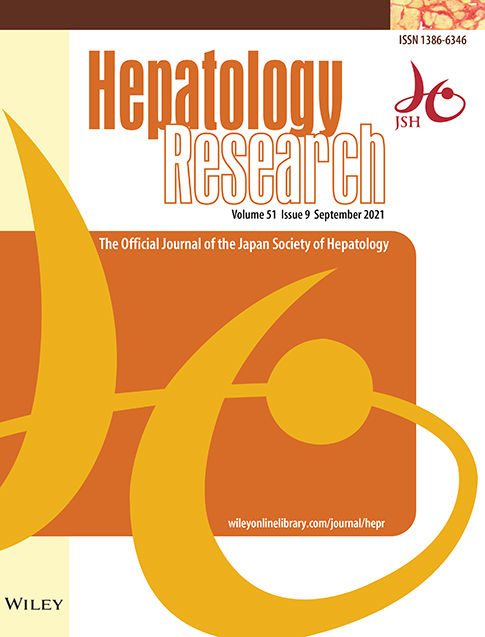The efficacy of rituximab treatment for antibody-mediated rejection in liver transplantation: A retrospective Japanese nationwide study
Abstract
Aim
Antibody-mediated rejection (AMR) has been consistently elucidated in liver transplantation (LT); however, the treatment for AMR, including rituximab, has not been indicated as a strongly recommended therapeutic protocol.
Methods
This study was conducted as the Japanese multicenter retrospective study to accumulate data on the use of rituximab for AMR among patients undergoing LT between August 2001 and December 2016. Thirteen patients (five children and eight adults) were enrolled.
Results
The types of AMR in the pediatric cases were chronic AMR in four cases and indeterminate AMR in one case. Among the pediatric cases, rituximab treatment only showed therapeutic efficacy in two patients with chronic AMR. Among the adult patients, five patients had chronic AMR, and three had acute AMR. Although two patients with chronic AMR died due to graft failure, liver function tests revealed improvement after rituximab treatment in the other patients. Two of the three patients with acute AMR died due to graft failure; rituximab treatment showed no therapeutic efficacy in these cases. Although bacterial infections occurred within 3 months after rituximab administration in three patients, rituximab treatment could be safely administered without any direct adverse effects.
Conclusions
The indication of rituximab therapy as an additional treatment for mild acute AMR and chronic AMR may be feasible; however, a prospective randomized control study is needed to evaluate the therapeutic efficacy of rituximab treatment for AMR.
CONFLICT OF INTEREST
The authors have no conflict of interest.




